It is of great interest that the chevron pattern, being as old as the hills, is commonly encountered in contemporary design. The first zigzag elements occur on pottery in Ancient Greece. The modern denomination emerged later. It was derived from the system of insignia used with reference to the military ranks. A chevron is a combination of zigzags or V-shaped elements, which differ in color and/or thickness. Today, the popularity of chevrons is largely contributed by the Italian fashion house Missoni, having colorful zigzag patterns as a symbol of their knitwear empire.
Remarkably, the graphics of the V-shaped ornaments is much sought-after in every domain of contemporary lifestyle, from a casual jumper to sophisticated interiors. Another peculiarity of the chevron layouts is their apparent simplicity, which transforms in an infinite number of variations. A trendy mix of colors is all what is needed to completely revive zigzag layouts.
It is for this characteristics that chevrons are valued by designers in the ceramic tile sector. A number of tile brands came up at Cersaie 2015 with the chevron-style collections. Pretty often the tile series are named after this smart pattern.
The name of the Chevronchic series by Fioranese speaks for itself. The small beveled-edge pieces prompt imagination to invent new setting schemes, whilst the variation of color evens out the contrasts and brings the aesthetic value to the forefront.
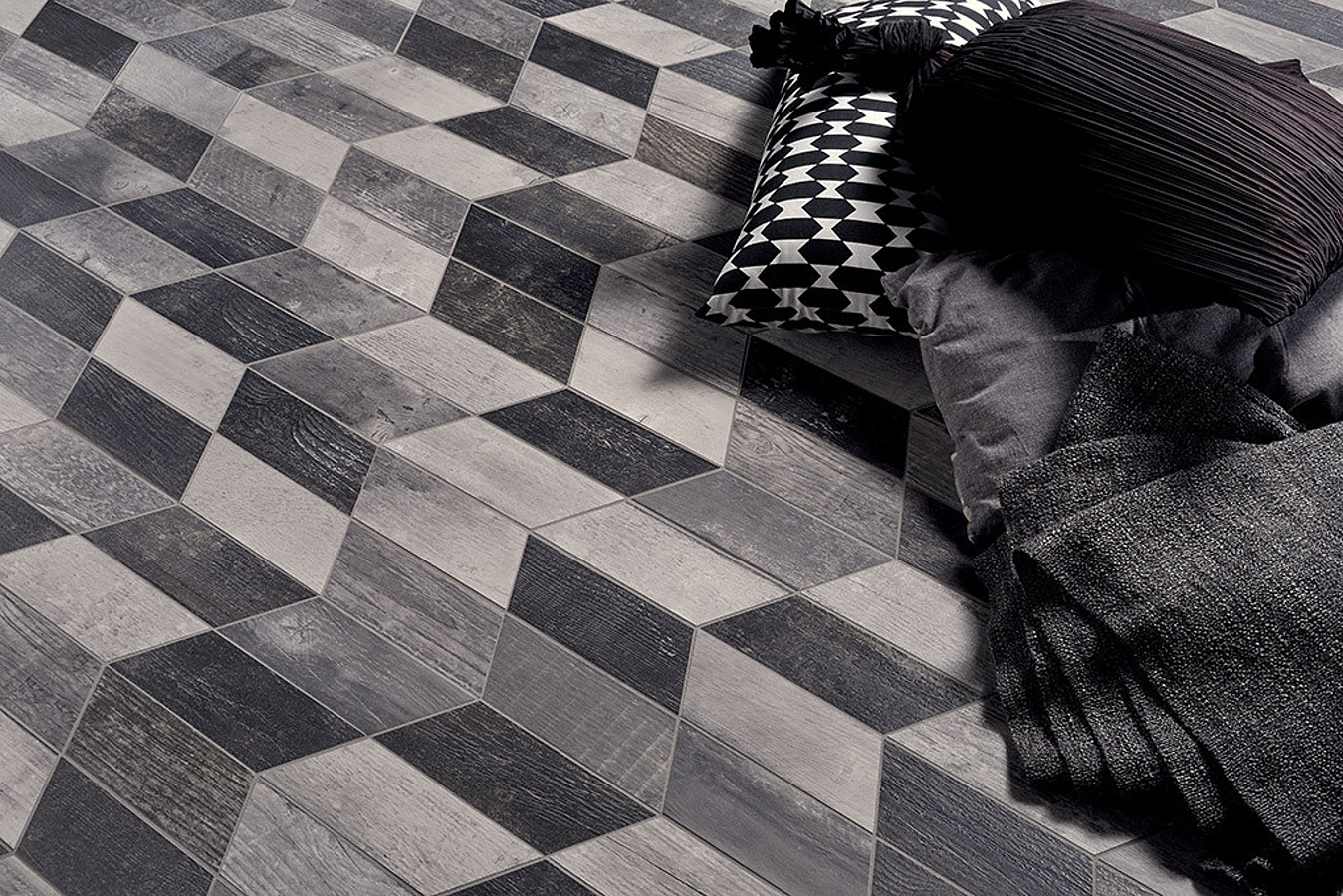
An original layout is obtained by the oppositely directed V-shaped elements set off by the straight lines.
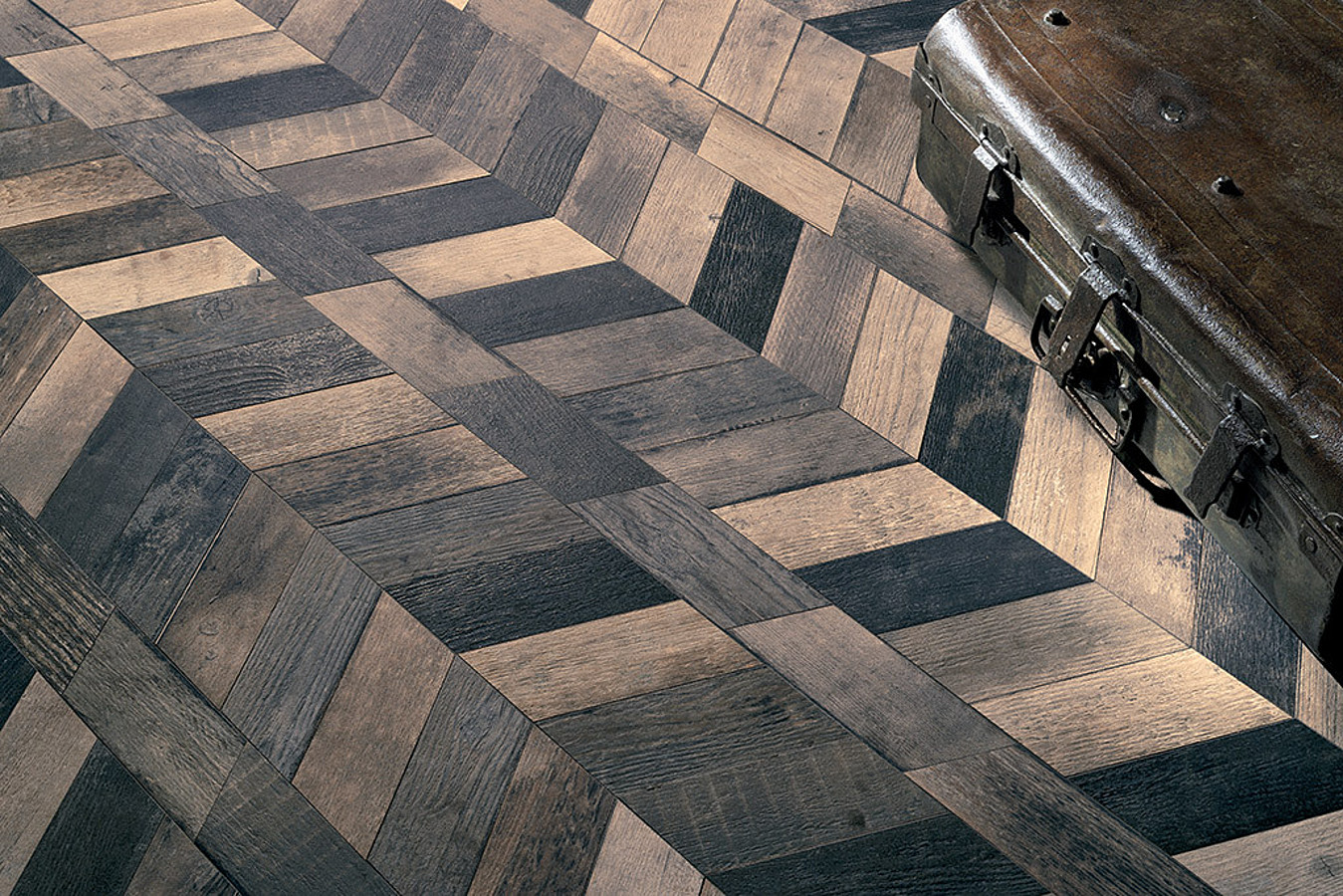
Besides, the rectangular tiles are ideal for the so-called "herring-bone" setting. Featuring a different arrangement and tile shape, this layout should not be confused with chevrons.
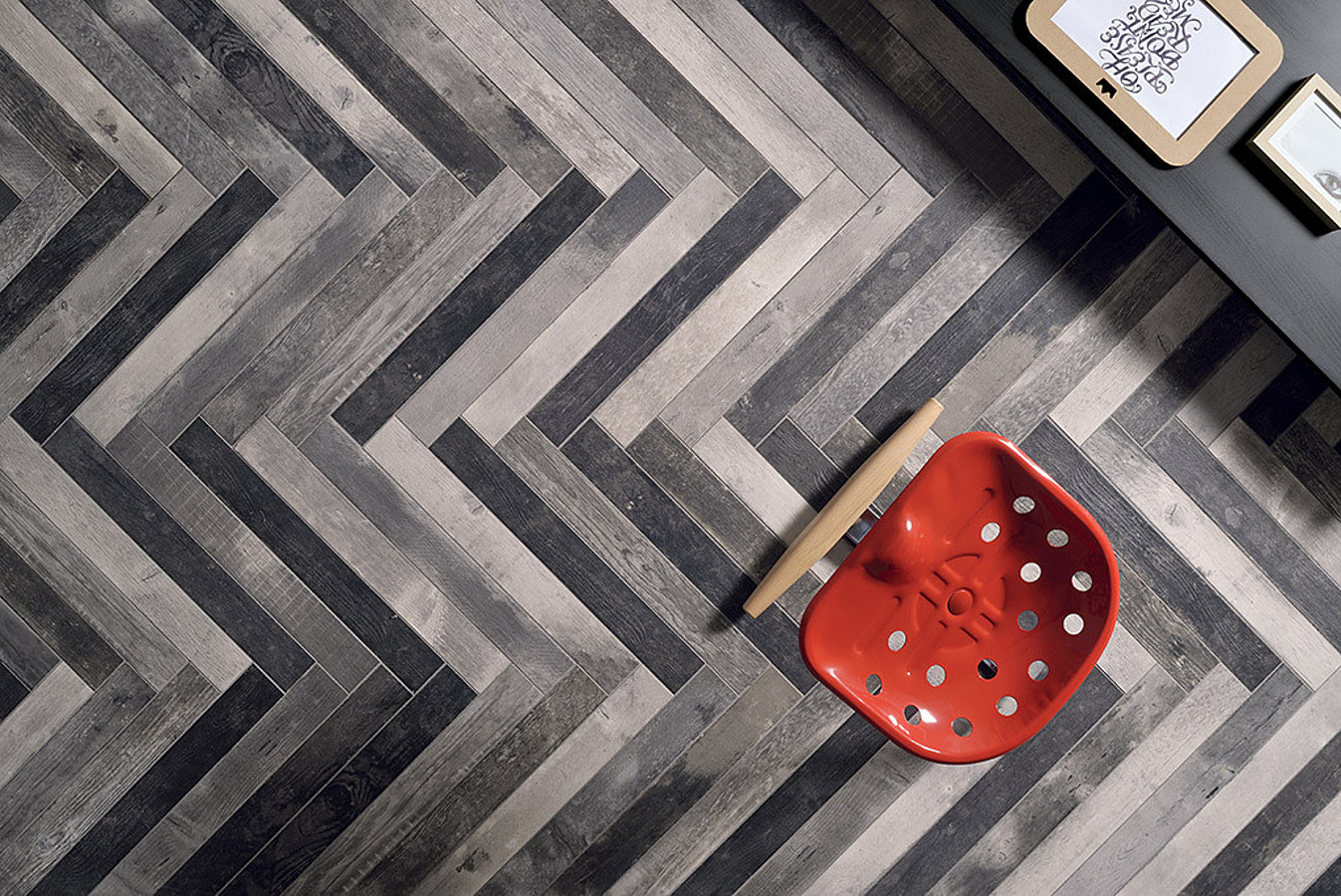
The Spanish brand Apavisa launched Nanoessence, a high-end collection of slim porcelain stoneware that renders the effect of natural stone. The series yields the classical black-and-white compositions and the beautiful pastel ornaments. In the former case, the chevrons are obtained both through the alteration of colors and the setting technique employed, while in the latter the V-shaped pattern is revealed only due to the tile arrangement.
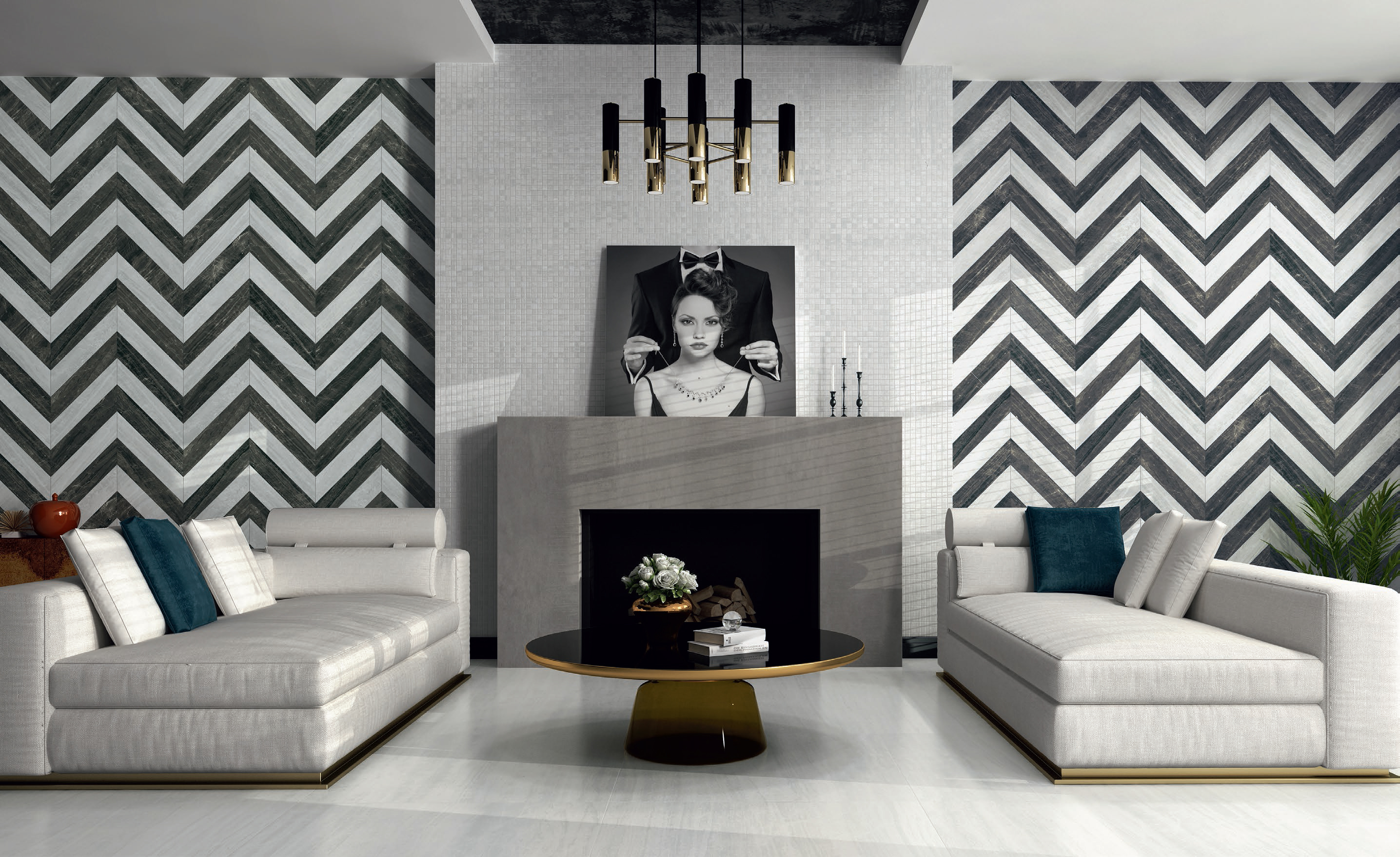
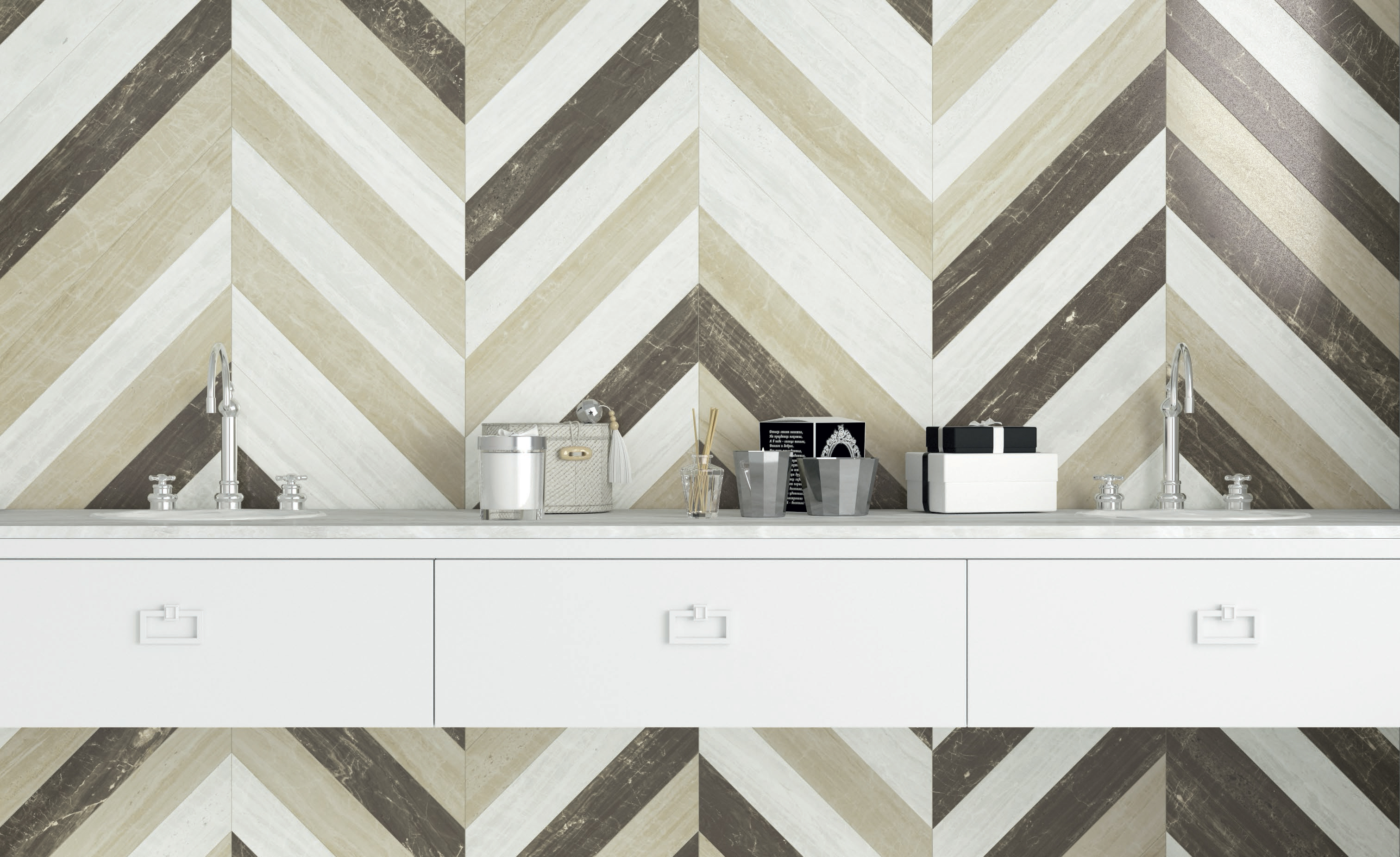
Spazio, the novelty by the Italian brand Verso25, is an awesome combination of graphical patterns.
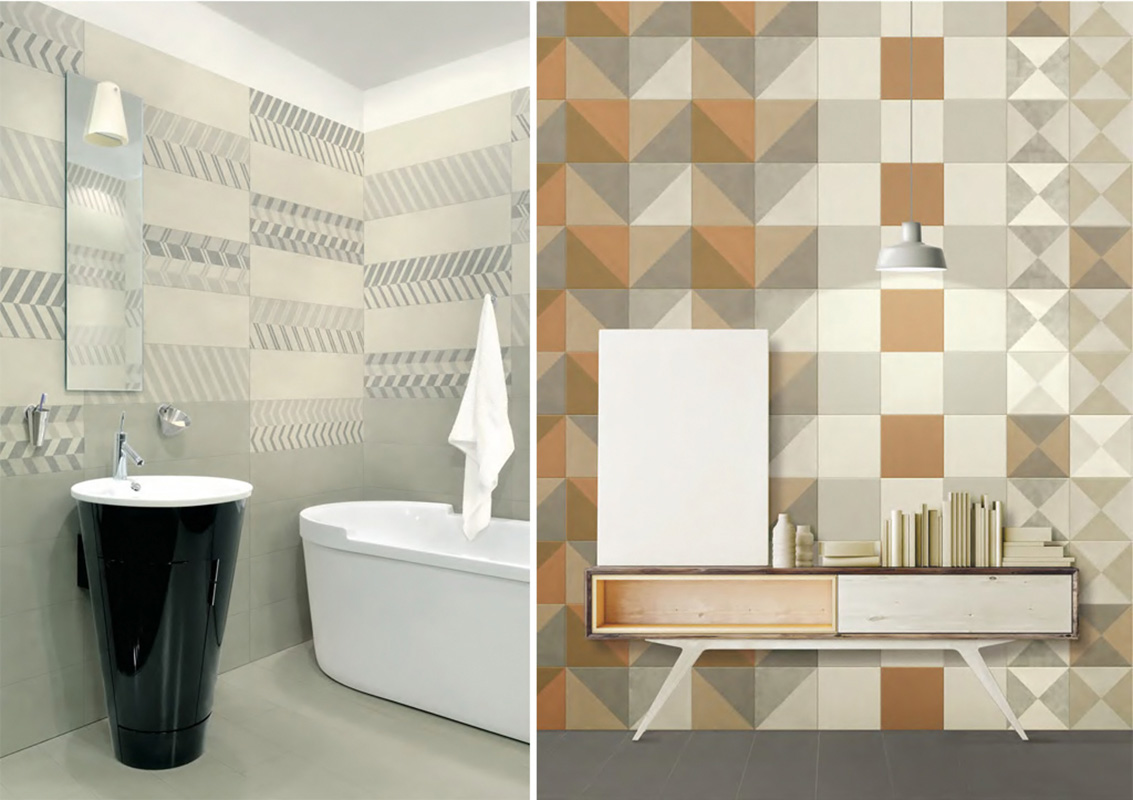
Though the special beveled-edge tiles used to obtain chevron layouts have been invented quite recently, the pattern itself is widely employed in the collections of numerous tile manufacturers. Trace by Cifre, where the chevron motifs are applied on the rectangular items, is an example of the simplest option, which provides for hassle-free installation.
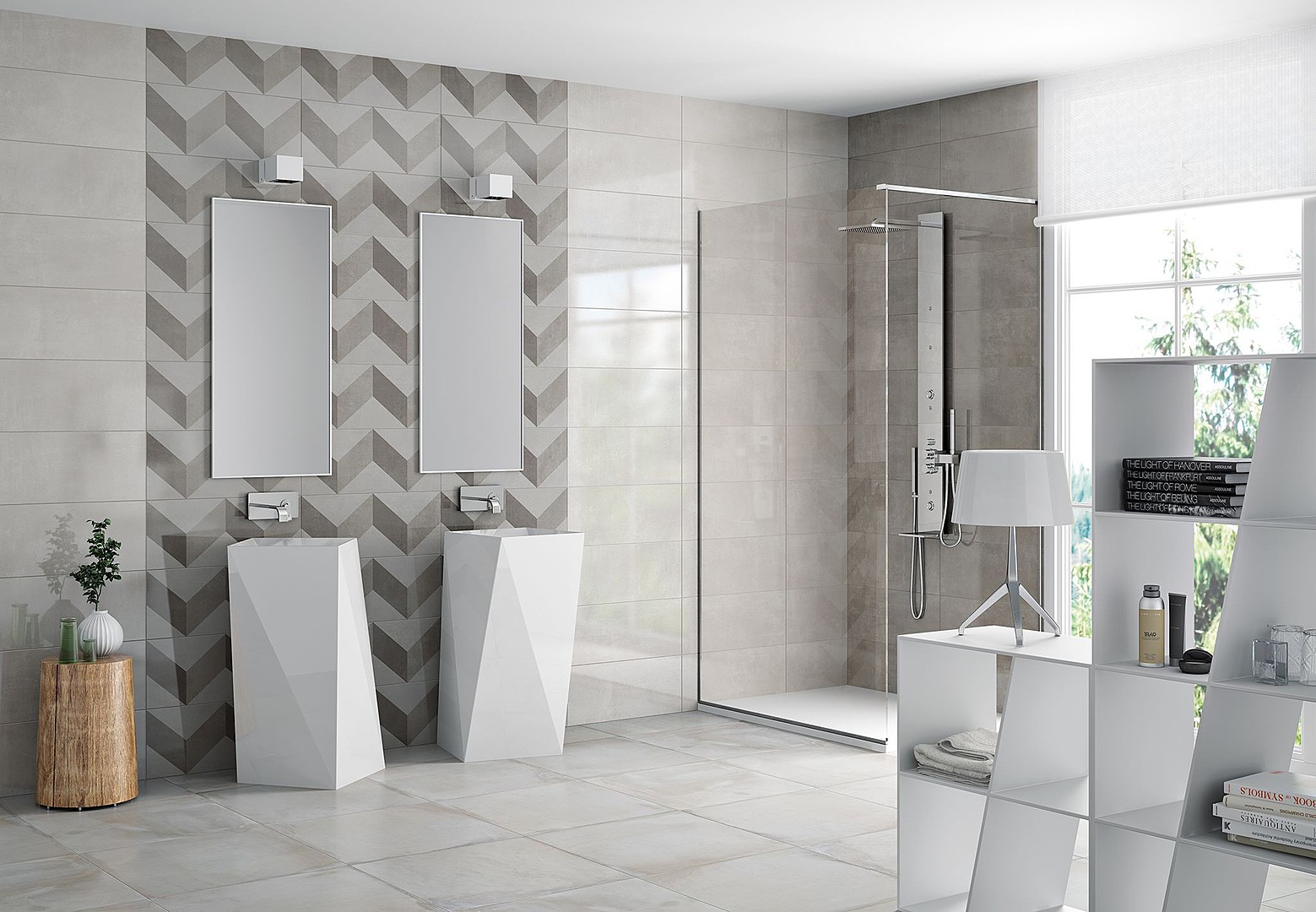
The same technique is employed by Marrakech Design for the Kelim squares. However the resulting tiled surfaces look differently.
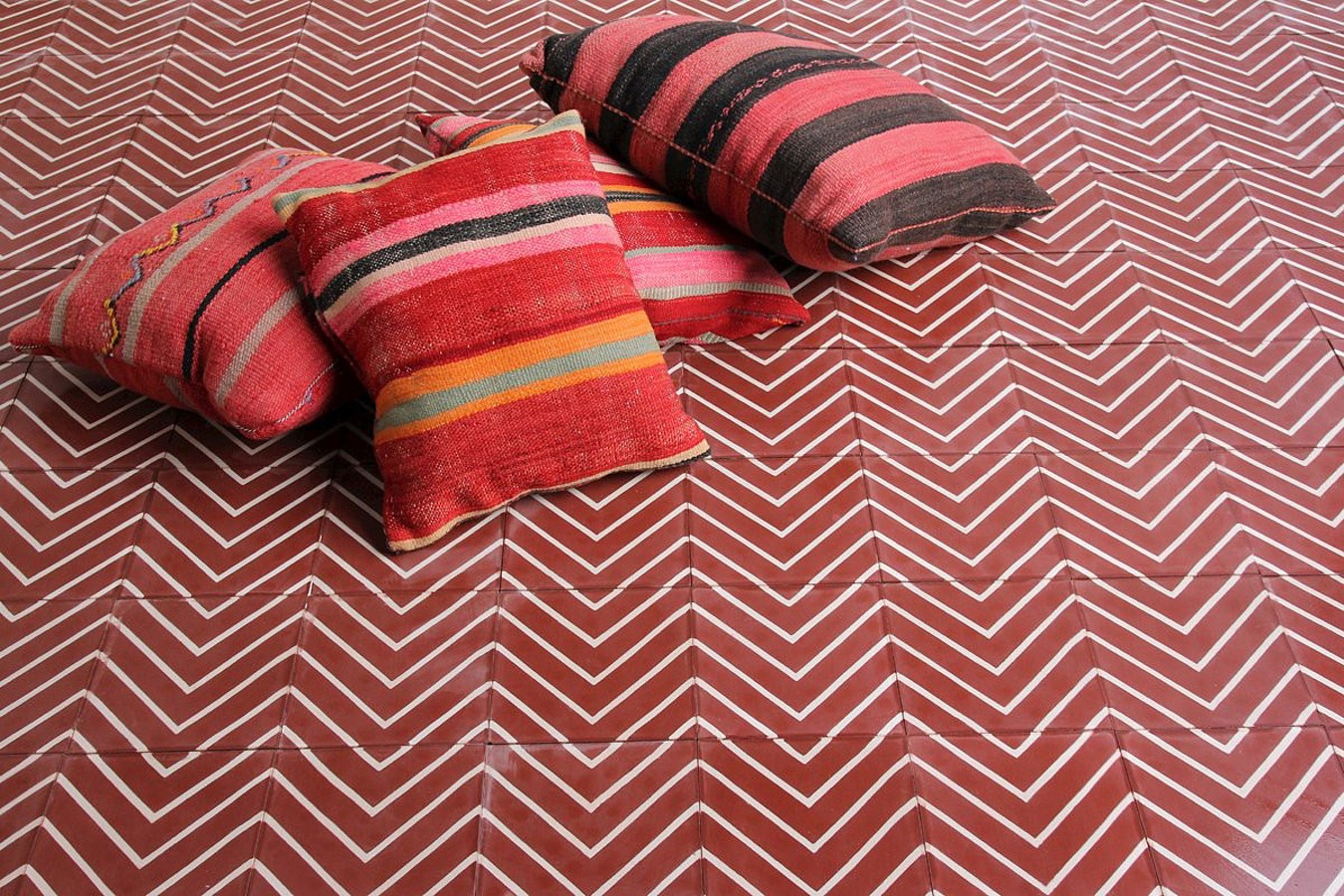
Remarkably, the herring-bone layout of the Plank 16 items by Horus Art also yields graphical chevrons.
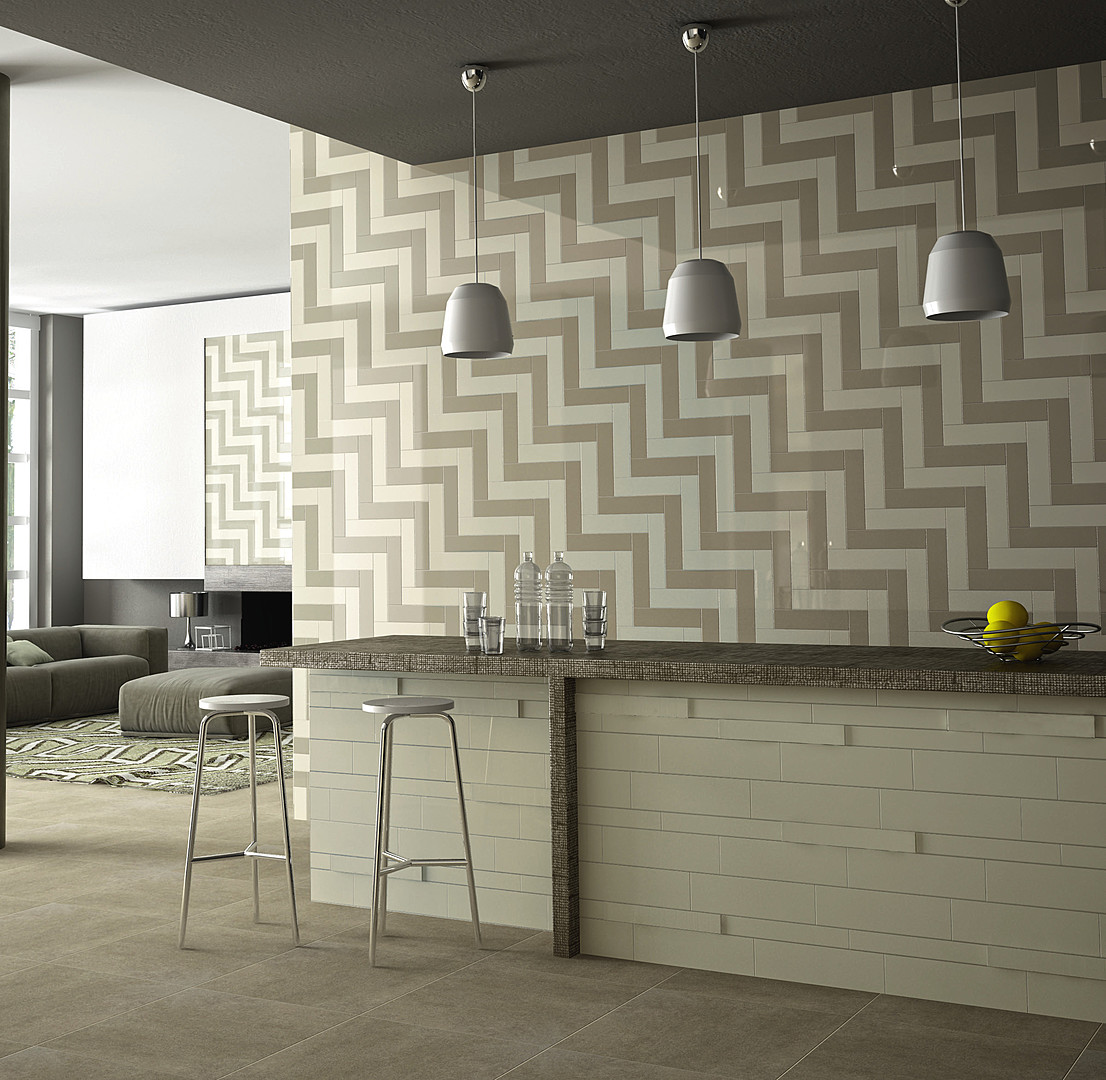
A non-trivial designer solution is demonstrated by Kronos Ceramiche. The chevron patterns are obtained using the square Trellis pieces subdivided into two contrasting parts.
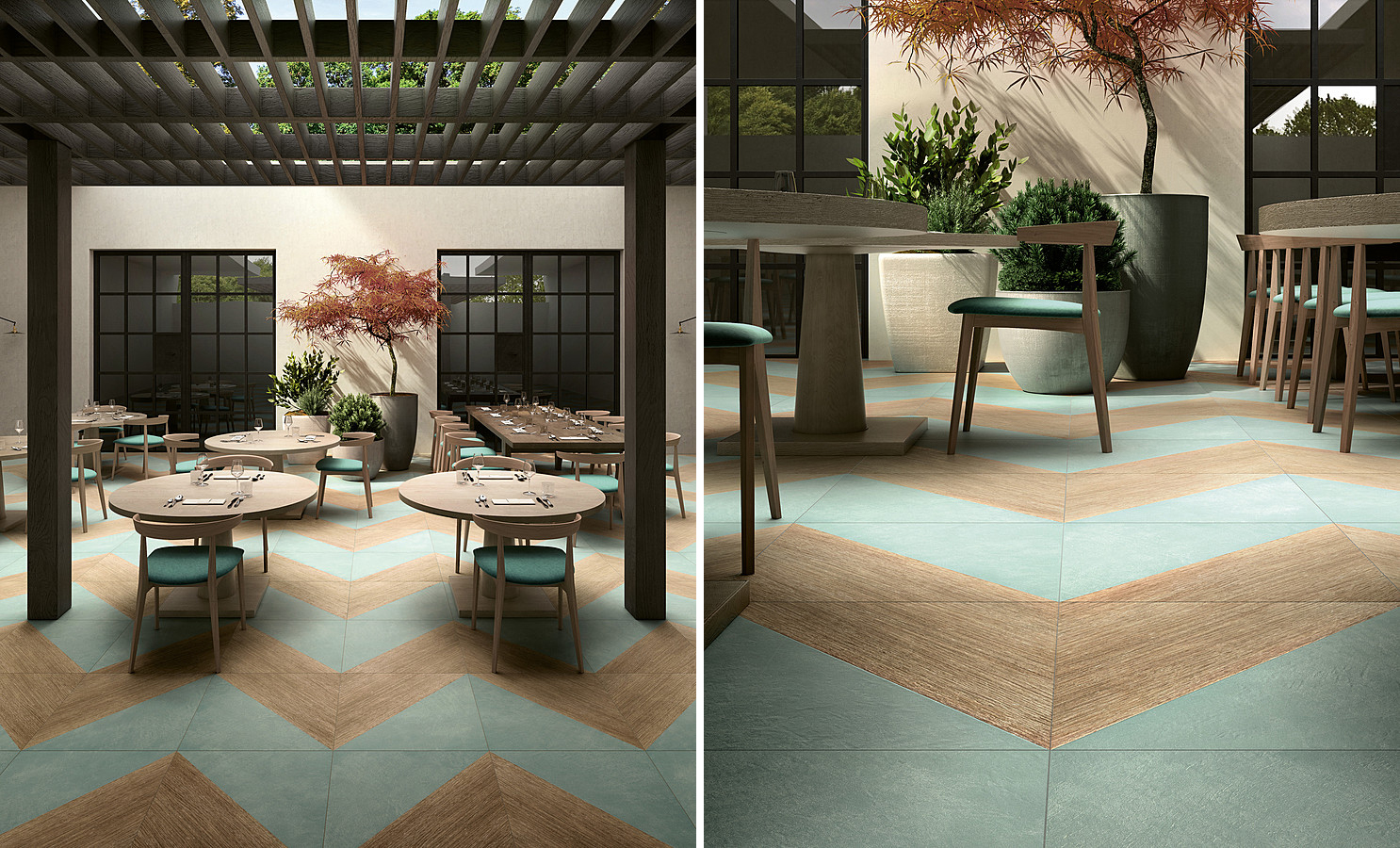
Equipe offers Hexatile, the series that features chevrons composed of lozenges.
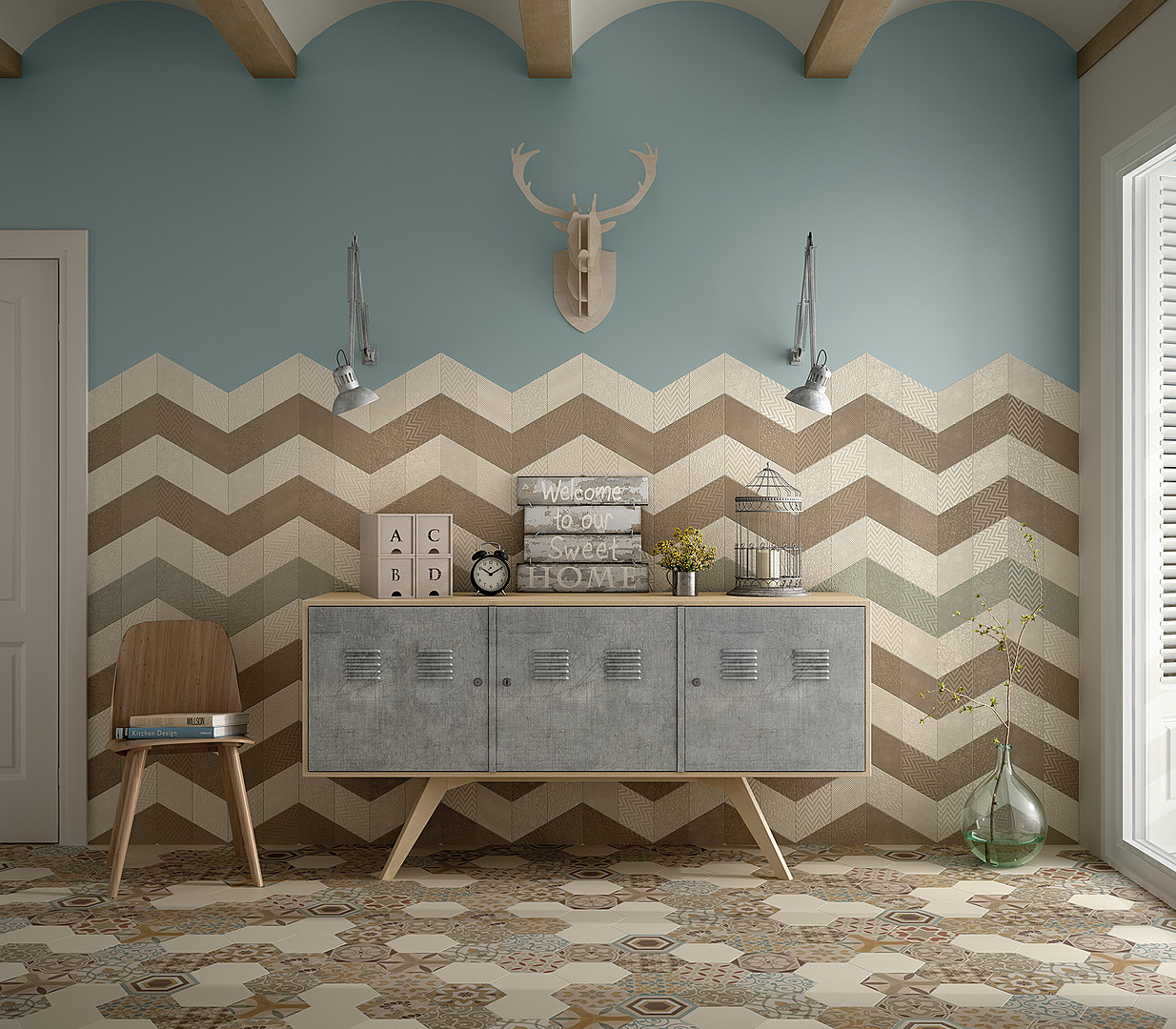
To conclude, chevrons are sure to be one of the most inspirational and versatile patterns in the contemporary tile design. The ever-changing zigzags underpin the projects of extraordinary aesthetic effect, wide area of application, and vibrant palette.

Chevrons. Rediscovery of Cersaie 2015 25.01.16
Questions & Answers Subscribe